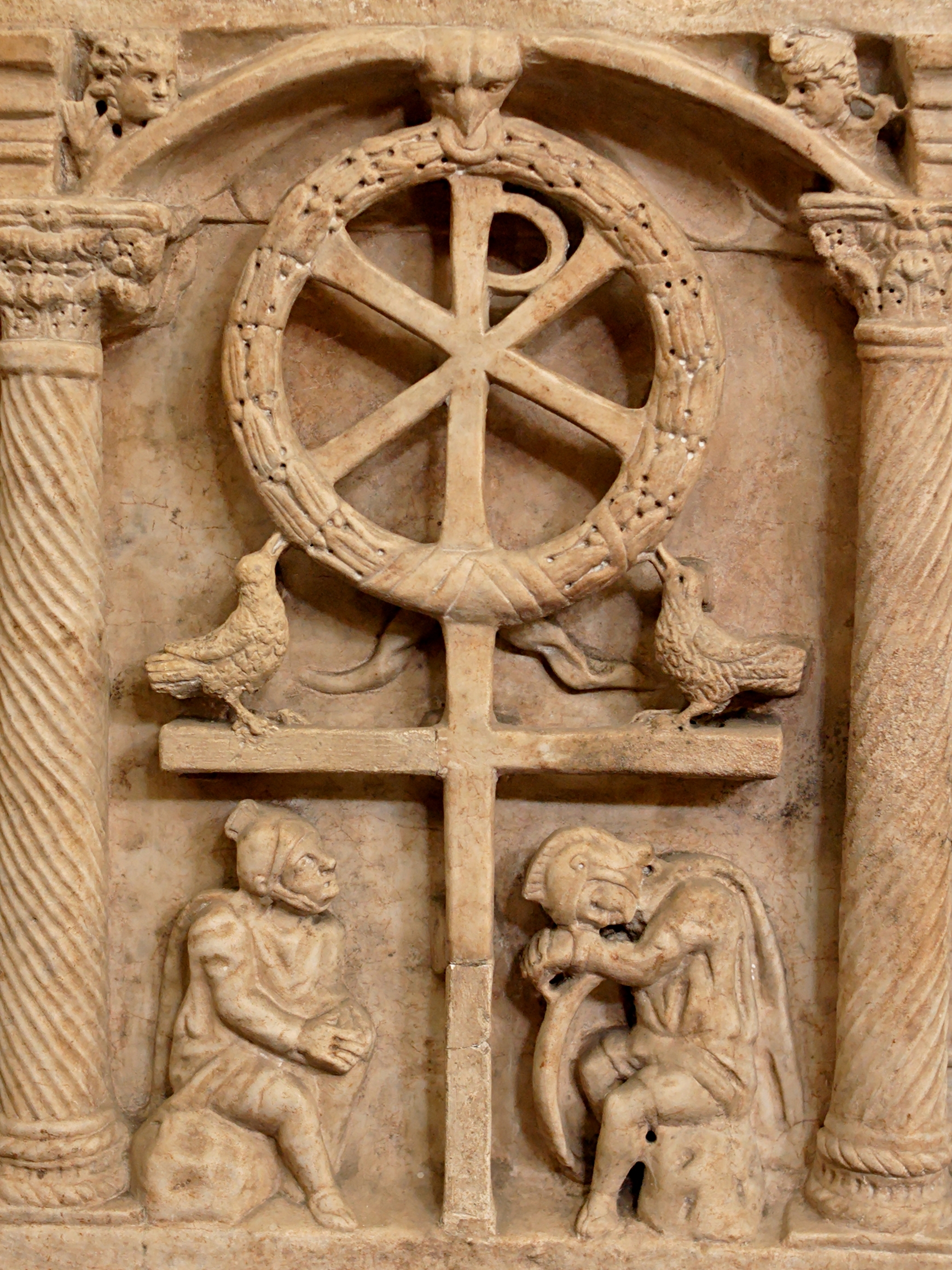Living Humanly: Stringfellow on the Power of Resurrection
 |
| Anastasis (ca. 350), Vatican Museums. (PD by photographer, Jastro, via Wikimedia Commons) |
In last week's post , I touched upon William Stringfellow's conception of resurrection as the exercise of freedom from the power of death under the conditions of fallen human existence. Today I ask: What does this resurrection life entail for the churches, for the communities of the ones baptized into such an "awful freedom"? He writes:
It is a freedom to live in the present age, during the remaining time of death's apparent reign, without escaping or hiding or withdrawing from the full reality of death's presence, bearing the brunt of its powers, yet jubilantly confident at the same time of Christ's victory over death and all the powers of death (p. 75).
Free in Obedience, by William Stringfellow (Eugene, OR: Wipf & Stock, 2006)
As I noted before, I would like to hear more about the character of that victory and its broader implications, in terms of Christ's unique person and vocation as Savior. At any rate, Stringfellow clearly is more interested in the effects of this victory within the life the believer -- really, for that matter, within the life of anyone; he is above all else a moral theologian, and moral theology for him always ramifies in the sociopolitical sphere.
Resurrection means transcending death, or more precisely overcoming bondage to it. In Stringfellow's theology, the force of the power of death, mediated through the myriad principalities and powers of the world enslaved to it, is dehumanization, the robbery of the prerogatives of all God's creatures. Consequently, Stringfellow elsewhere describes the ethics that ensues from the resurrection life as "living humanly in the midst of death" (See An Ethic for Christians and Others in a Strange Land, Wipf & Stock, 2004, chap. 5). Though I forgot where she got this term, my wife appropriately characterizes this basic stance as re-humanization. It is an ethic, if you will, of defiance -- or to use a word that liberals have rediscovered in the Trump era, resistance.
It is the freedom to live anywhere, any day, in such a way as to expose and confound the works of death and at the same time to declare and honor the work of Christ (pp. 75-76).
This is a life lived in the world but not of it, which doesn't mean quietist detachment but entails, rather, the clear perception that the death afflicting all spheres of existence is grounded upon an illusory claim to omnipotence, whereas Christ, the Lord of life, reigns supreme. Stringfellow emphasizes that resurrection life is intrinsically ethical, not solipsistic -- that is, oriented toward the good of the other as well as oneself: Resurrection is a communicative power and is not meant to be hoarded by believers. The freedom to act in generosity and compassion flows from the gift God bestows upon the churches.
The Body of Christ receives this freedom for the sake of the rest of the world which still suffers the bondage and agony of death. (p. 76)
What does the resurrection life look like in practice? Stringfellow, who typically interweaves his arguments with vivid lived experiences, culls anecdotes from the rich skein of his practice as a lawyer, activist, and Episcopal lay minister. Sometimes he can be pretty pithy: Demurring from what (to his mind) was unhealthy speculation about the body of Jesus and the empty tomb, Stringfellow once gave the image of "Phil Berrigan in jail" as an icon of resurrection (See my earlier post .)
One of the most poignant and beautiful examples of what he means by resurrection is a story from the days of his law practice in New York City (See My People is the Enemy, Wipf & Stock, 2005, pp. 145-147). Lou Marsh was a New York City youth worker beaten to death by gang members in 1963. Marsh had interceded between two rival gangs to prevent a score-settling battle, and several of the older gang members had resented the interference, which had resulted in an armistice. According to Stringfellow, Marsh, after struggling with self hatred earlier in life, had had something of a conversion experience in which he came to know himself as beloved by God. This experience freed him to take a Youth Board job, with all the personal risks it entailed, and to give himself wholeheartedly to helping the youth of the city. Stringfellow writes:
Lou Marsh, when he died, was ready; that is, he had already died in Christ and was without fear of death. That is the freedom the Resurrection bestows upon men (p. 147.)
Alleluia.
==================================
Follow @jsjackson15

Comments